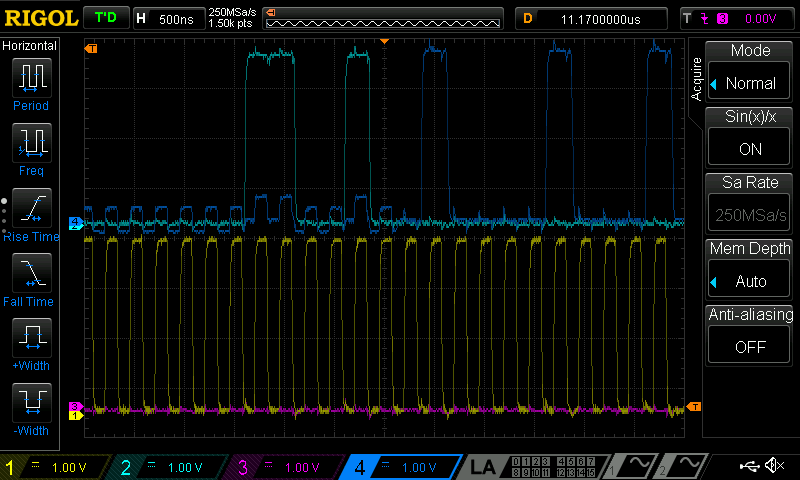Hi,
I have successfully connected an MCP3004 to the nRF52832 and can assign the ADC channel 0 output to a characteristic value. Works beautifully.
However, there are three other channels I want to use on the ADC for other sensors and the method to query the ADC over the SPI bus uses a bitmap to select the channel in the initial query.
The problem is the SPI event that occurs.
I presently will not know which channel is being returned in a given event.
Is there a method to tag the initial transfer with some indicator of which channel is being requested? Perhaps some other clever way?
Maybe having different rx buffers and a map of which buffer pertains to which channel?
Thanks!



